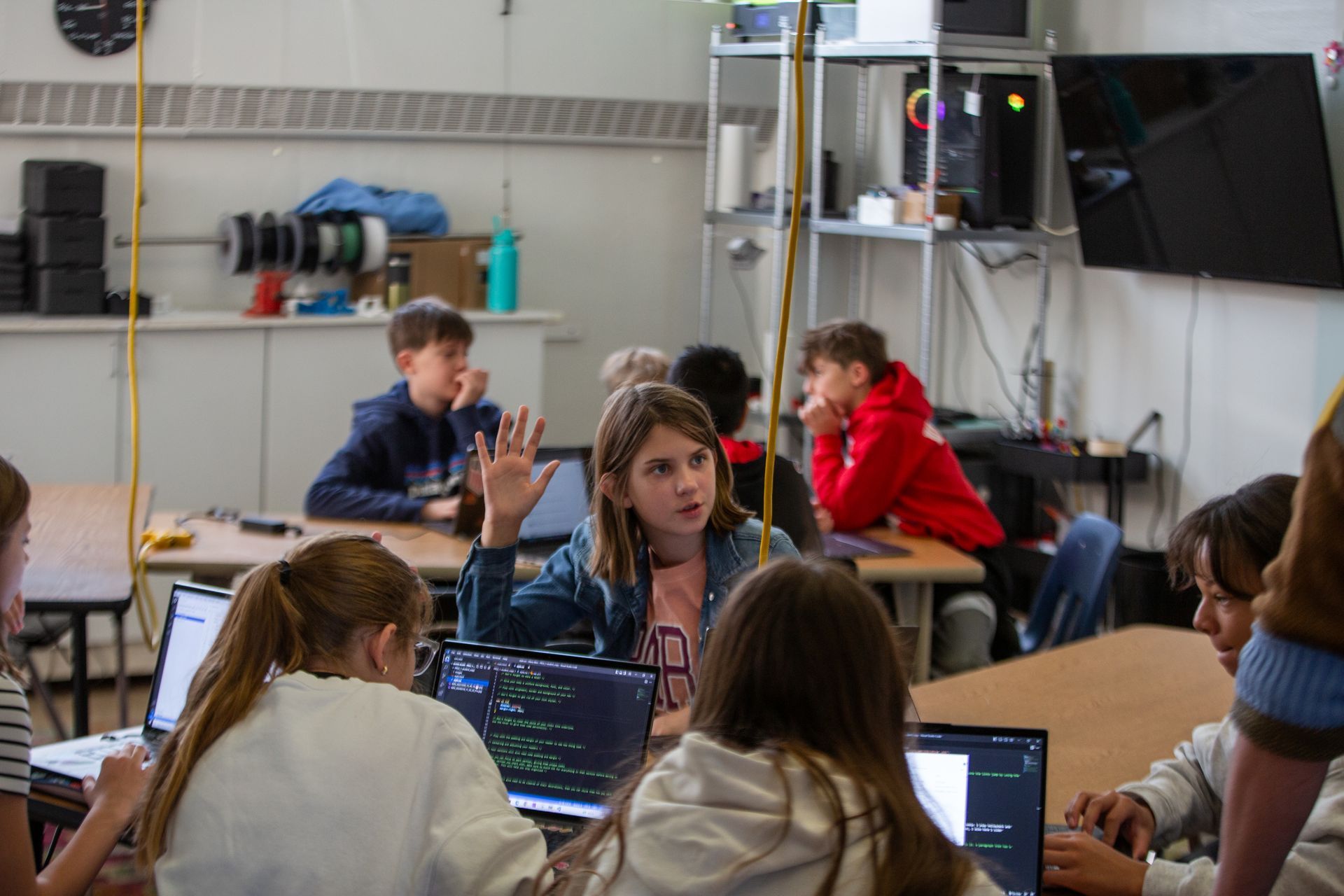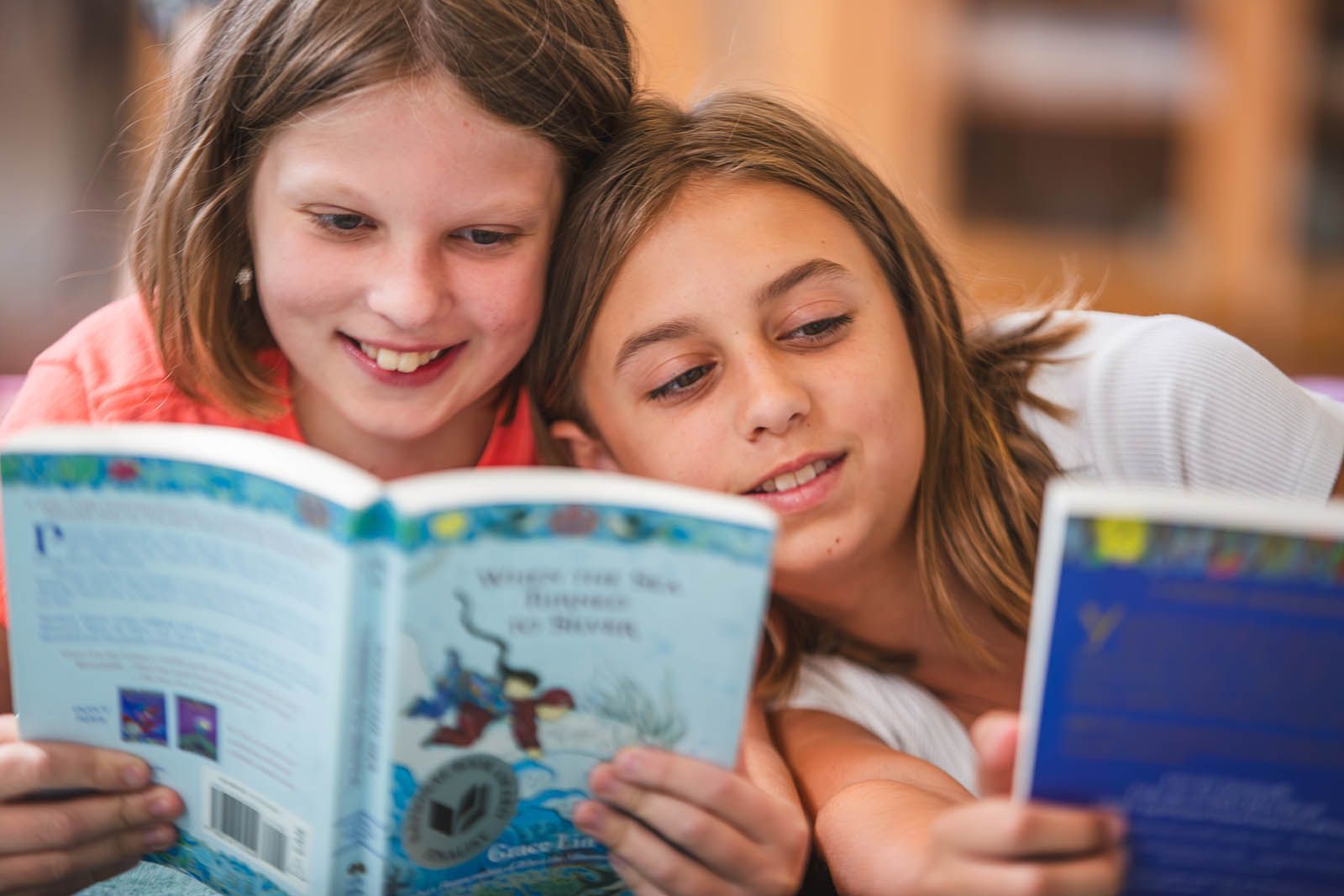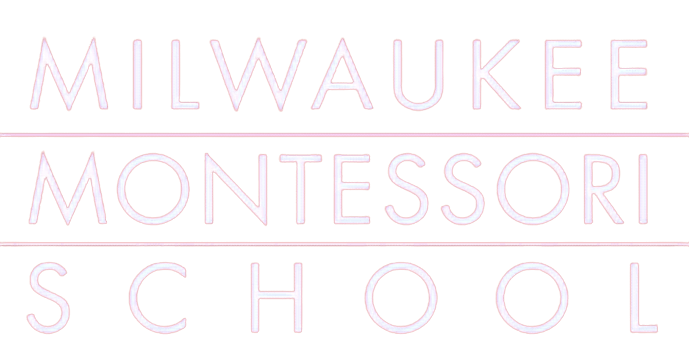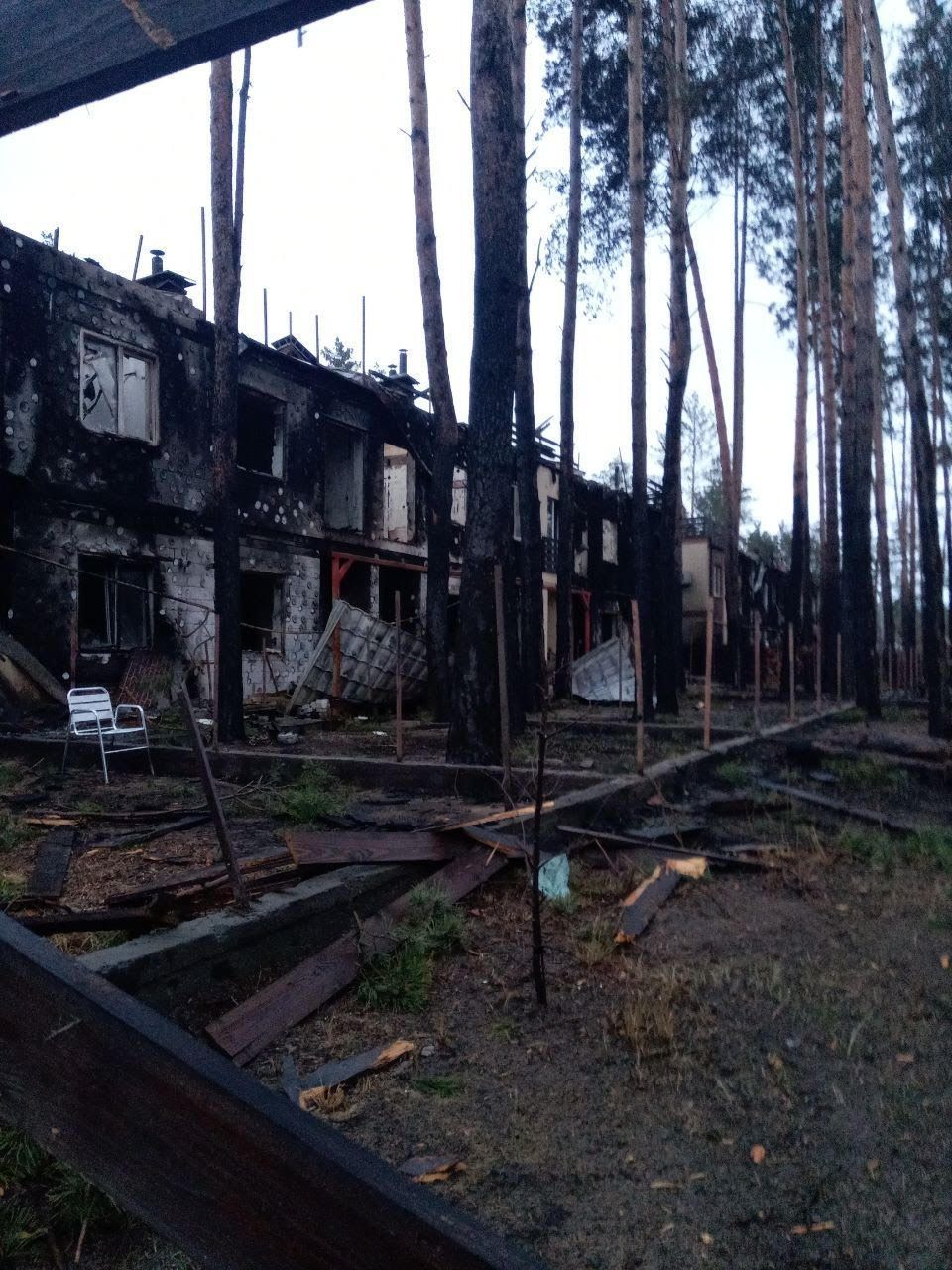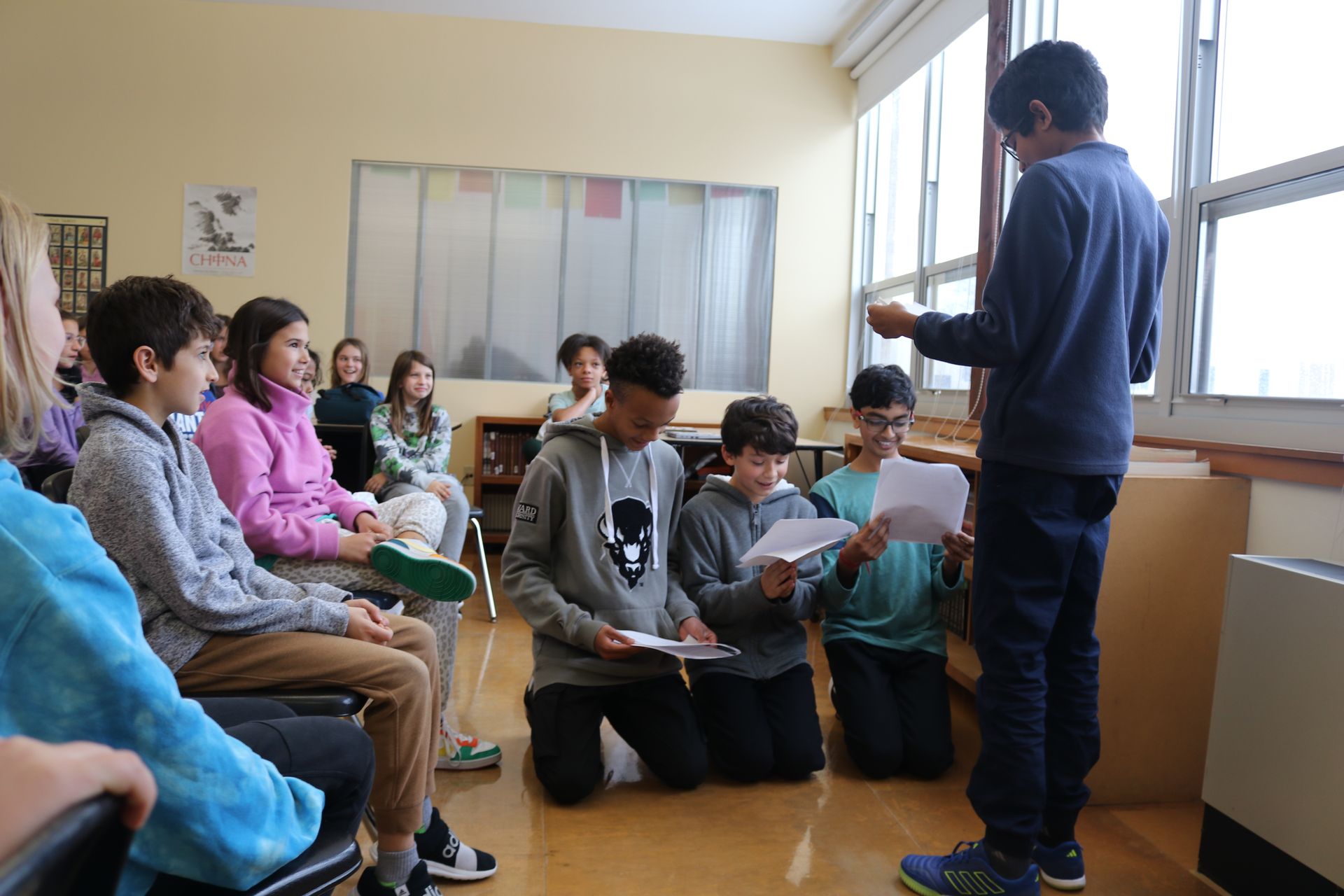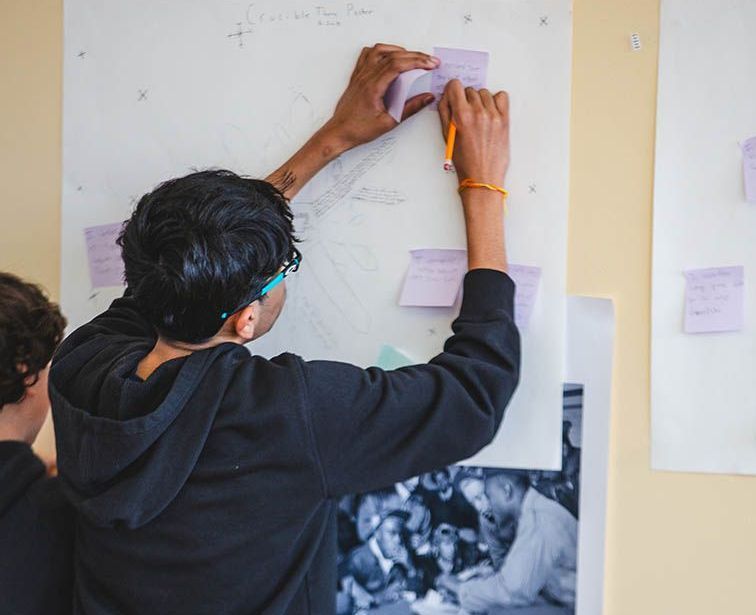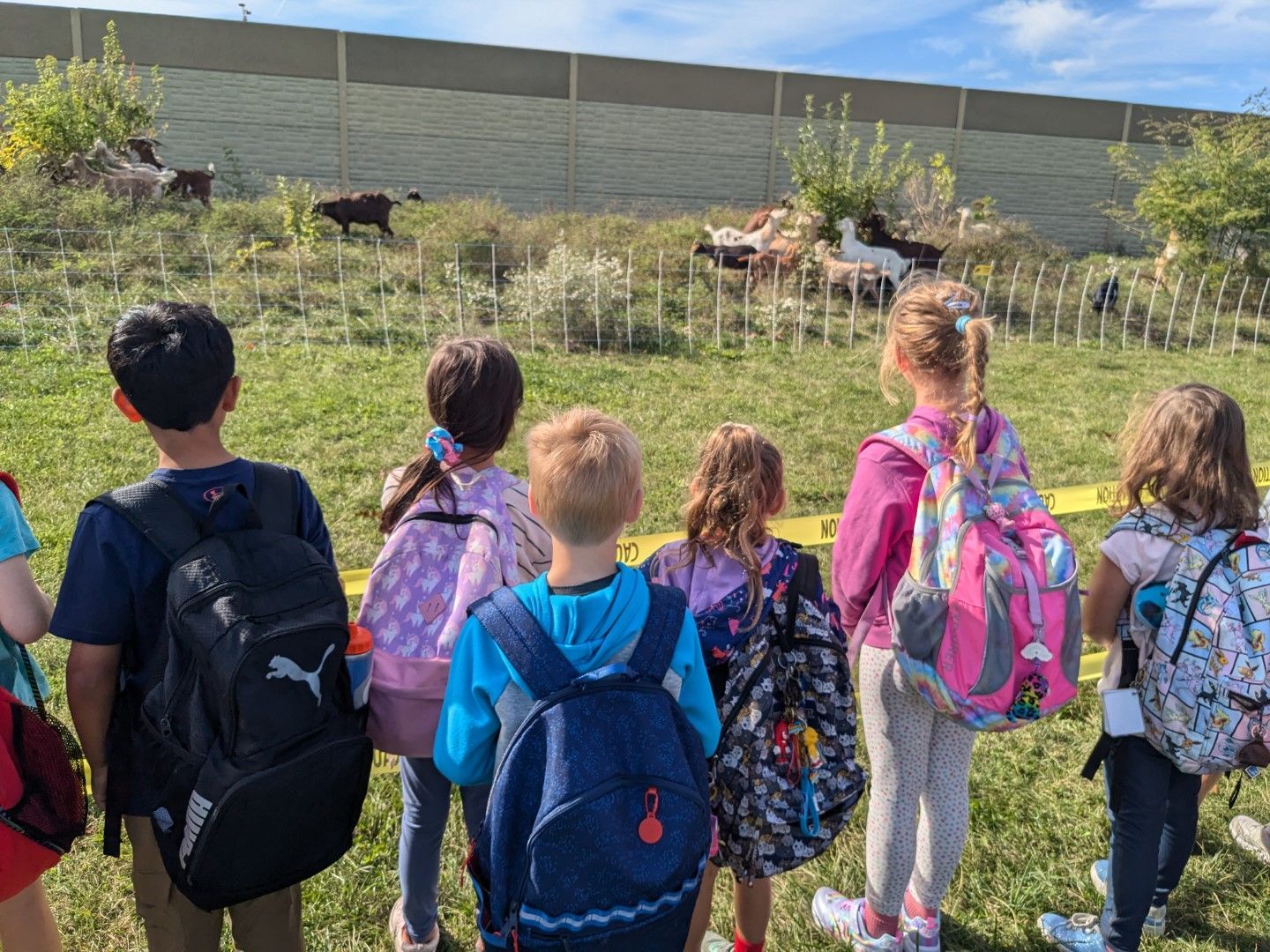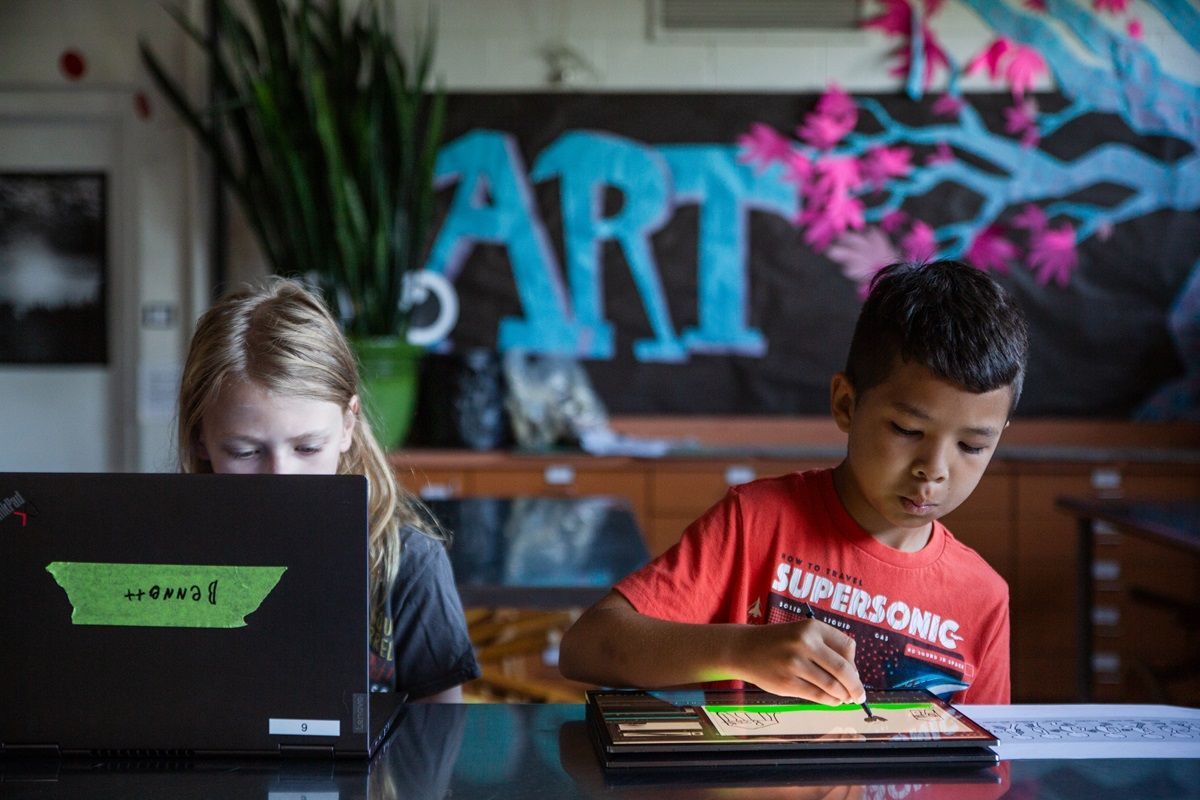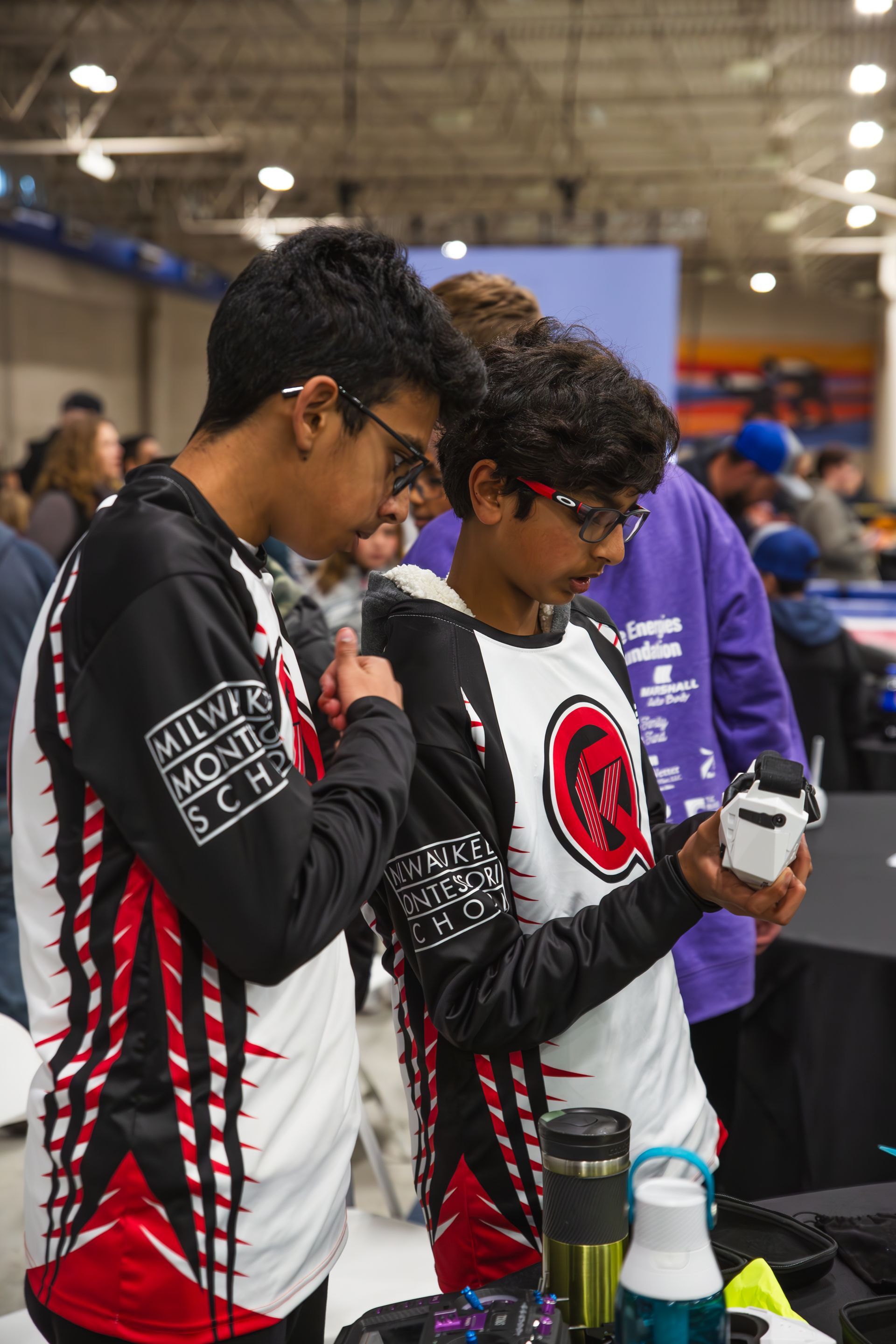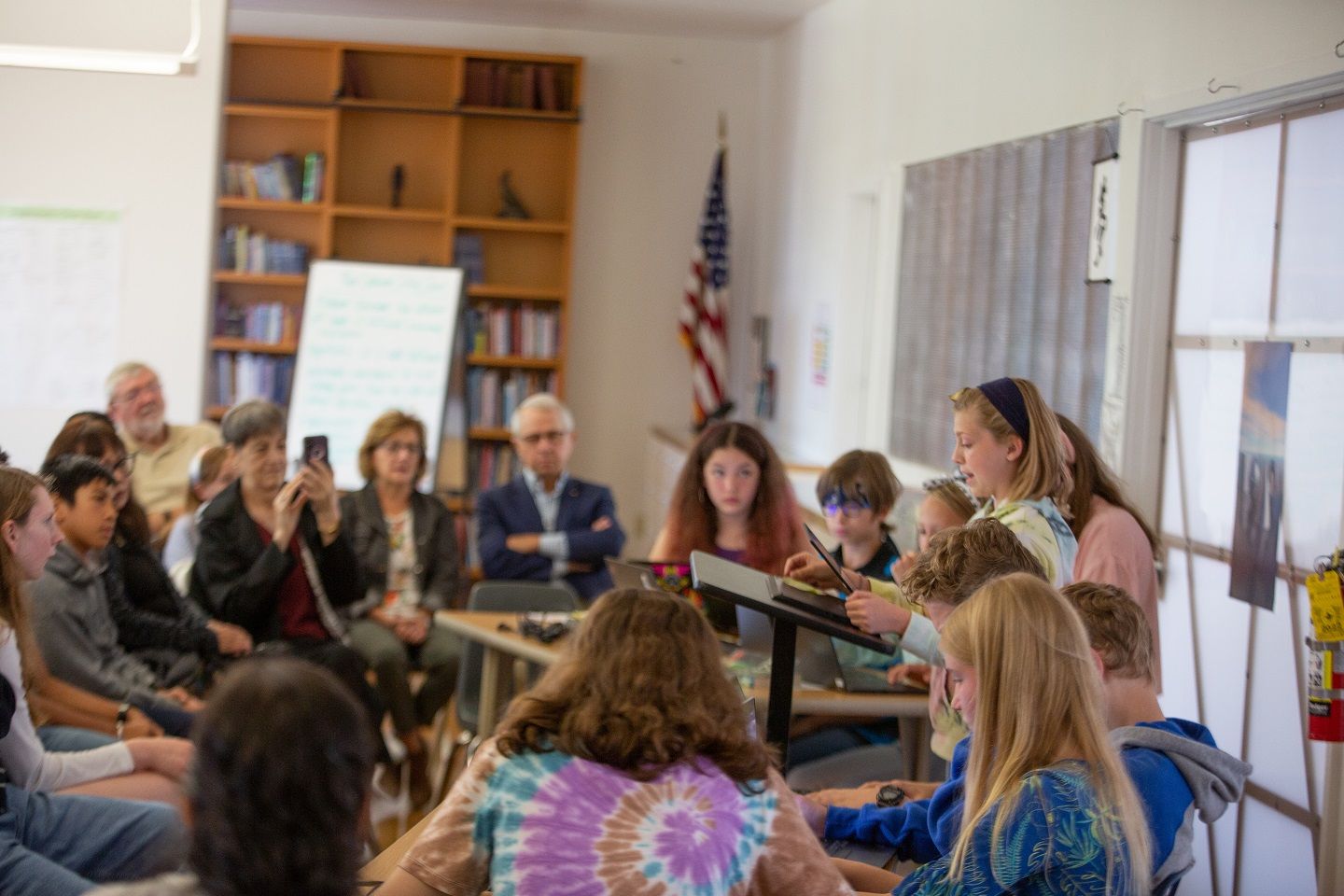Anika's Harrowing Journey
New Paragraph
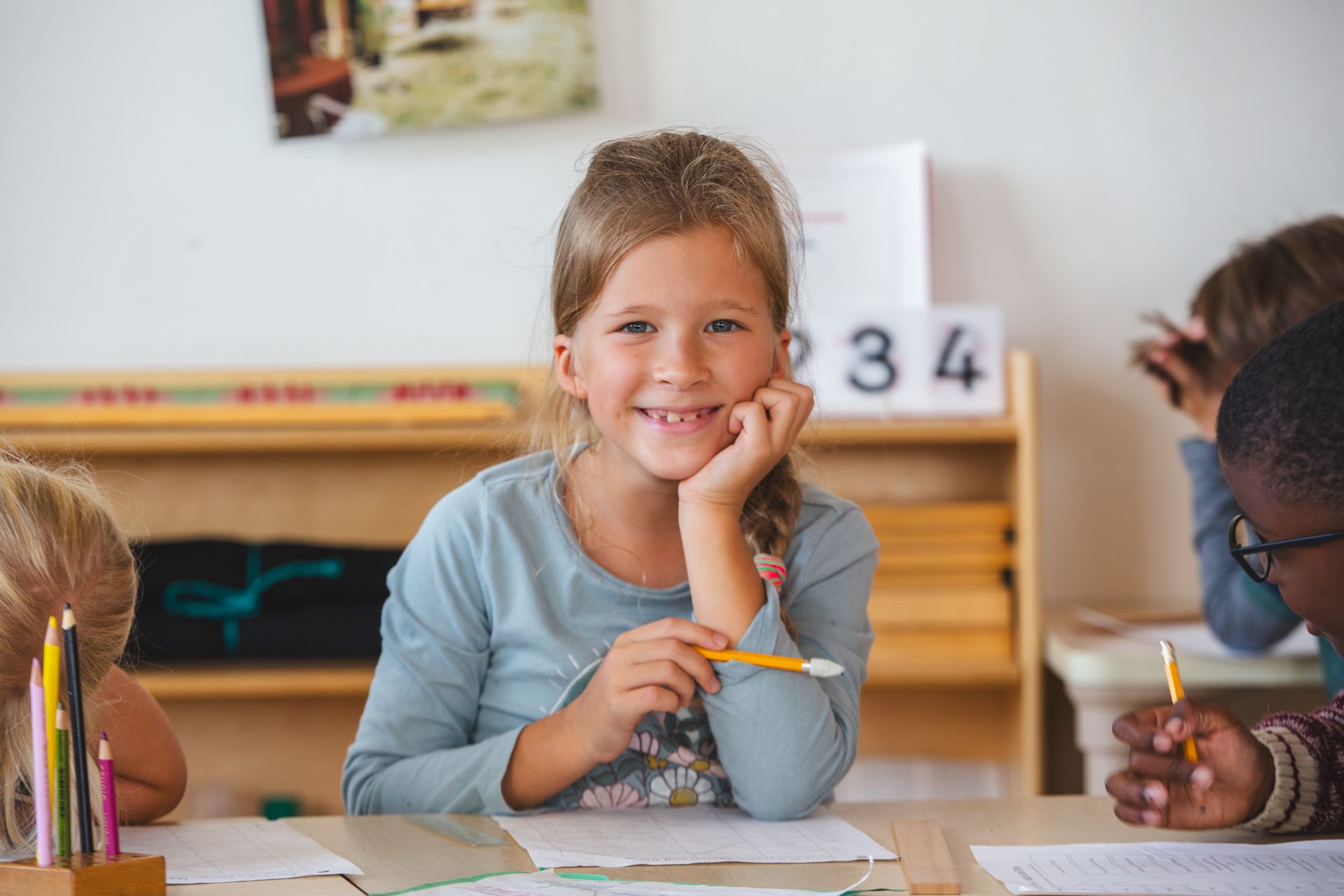
When MMS was founded in 1961, we were preparing children for a different world. In the decades since then, communication and computing technology have allowed us to know and see what people are doing in real-time, anytime, in almost any place on this earth!
Whether studying global politics through the World Peace Game, preparing issue papers for the Model UN, learning computer programming to create software content, or studying the effects of storm water runoff on the health of Lake Michigan, MMS is preparing our students to lead in today’s world, not the world of yesterday.
An important aspect of this is maintaining a diverse learning community so our students have the experience of working closely with and developing deep friendships with people from many different backgrounds and cultures.
By bringing many perspectives to our community we better prepare students with the complex skills required of a “change-making generation.”
Tuition assistance makes this vision possible. Because we are a school for working families, we do our best to keep our
expenses and
tuition as low as possible. We do not have an endowment as some private schools do; tuition alone pays for our programs and salaries. To provide support for all of the students and families who need it, we must raise tuition assistance funds every year through our
MMS Fund.
Money raised through the MMS Fund goes directly to tuition assistance for students who need it. When you
give generously to the MMS Fund, you make it possible for children to attend who simply would not be able to otherwise - children such as Anika.
A few months before Ukraine was invaded by the Russian army, five-year-old Anika had just started Montessori school in Kyiv. Her parents had bought a new house, and Anika’s mother, Iryna, a prominent psychologist, had just opened a new office. “Things seemed perfect,” remembers Iryna. Then, one morning in February at 4:00 a.m. Iryna got a frantic phone call from her sister:
“Everything has started! You need to get out of the city now.
The Russians are shooting, bombing, and killing people! Leave immediately!
It’s only a matter of time before they get to your area!”
Jumping out of bed, Iryna and her husband Vladimir, quickly woke Anika, packed two suitcases, put their two cats in a carrier, and within thirty minutes had left their entire world behind. They began the arduous trek to Iryna's sister's house in a remote, forested area in Ukraine some sixteen hours away by car.
“At first, I told Anika we were going on a weekend vacation, but after a few hours, she knew this wasn’t true.”
Though at first, it was quiet as they hurried away from the city, they began to hear and see missiles flying overhead and then heard them exploding in the distance. Russian tanks were on the other side of the road heading toward the city. Just a few hours later, while her phone was still working, Iryna says that a neighbor reported that the streets were at a standstill; nobody else could get out.
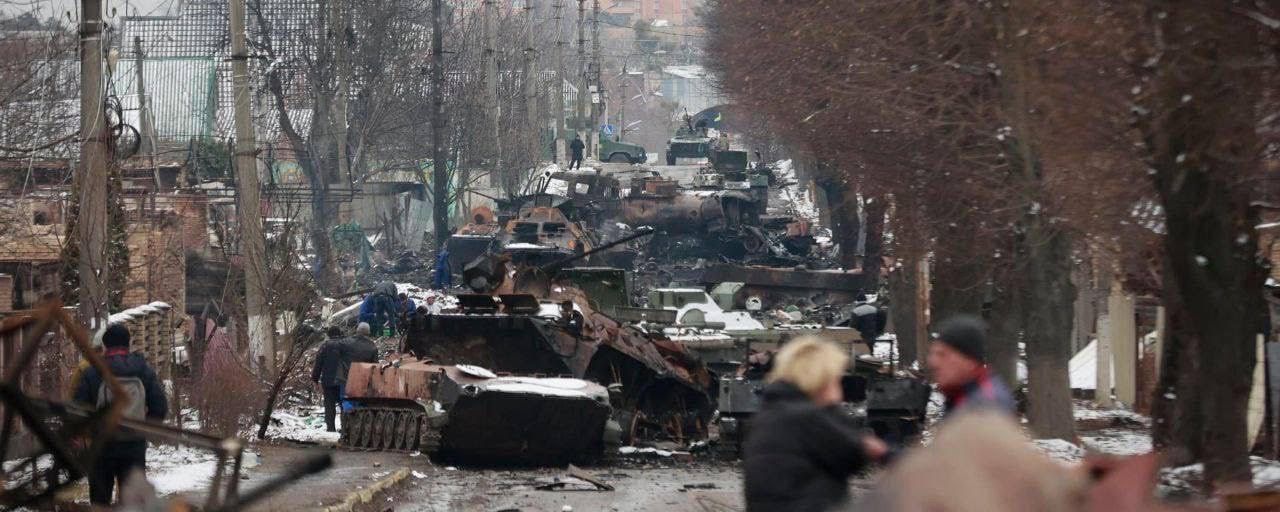
Incredulously, Iryna’s neighbor described how Russian soldiers were bombing lines of civilian cars, and when people tried to run from their cars, they were being shot and killed in the street: “My neighbor said Russian soldiers pulled our friends from their cars and killed them. They went into our homes and shot and killed entire families, including children. They looted and destroyed our homes, even ripping toilets from the floor.”
They drove the whole way to Iryna's sisters without stopping for any food or water, and eventually, they reached the mountains. Iryna's parents did not make it out of the city, instead, they were barricaded in a bomb shelter for eleven days before fleeing to the mountains to meet them. But by then even the mountains weren’t safe, and they all had to flee again. Iryna, Vladimir, and Anika started driving toward Spain before learning from others in Hungary that there was no work in Spain, and instead headed to Italy. Iryna’s mother, father, sister, and nephew fled to France where her mother had a job.
A church in Garda Lake in Northern Italy, gave Iryna and her family a place for three days before they drove on to Bergamo, where the Catholic Church found them an empty room in which a woman had died a few weeks before. “There we lived for six months,” Iryna said. “In this one-room apartment in an attic with a kitchen no bigger than an ironing board, and one small attic window the size and shape of a shoebox. It was so hot that summer, over 100 degrees for days and days. We slept on the floor, but it was free, and we had no money.”
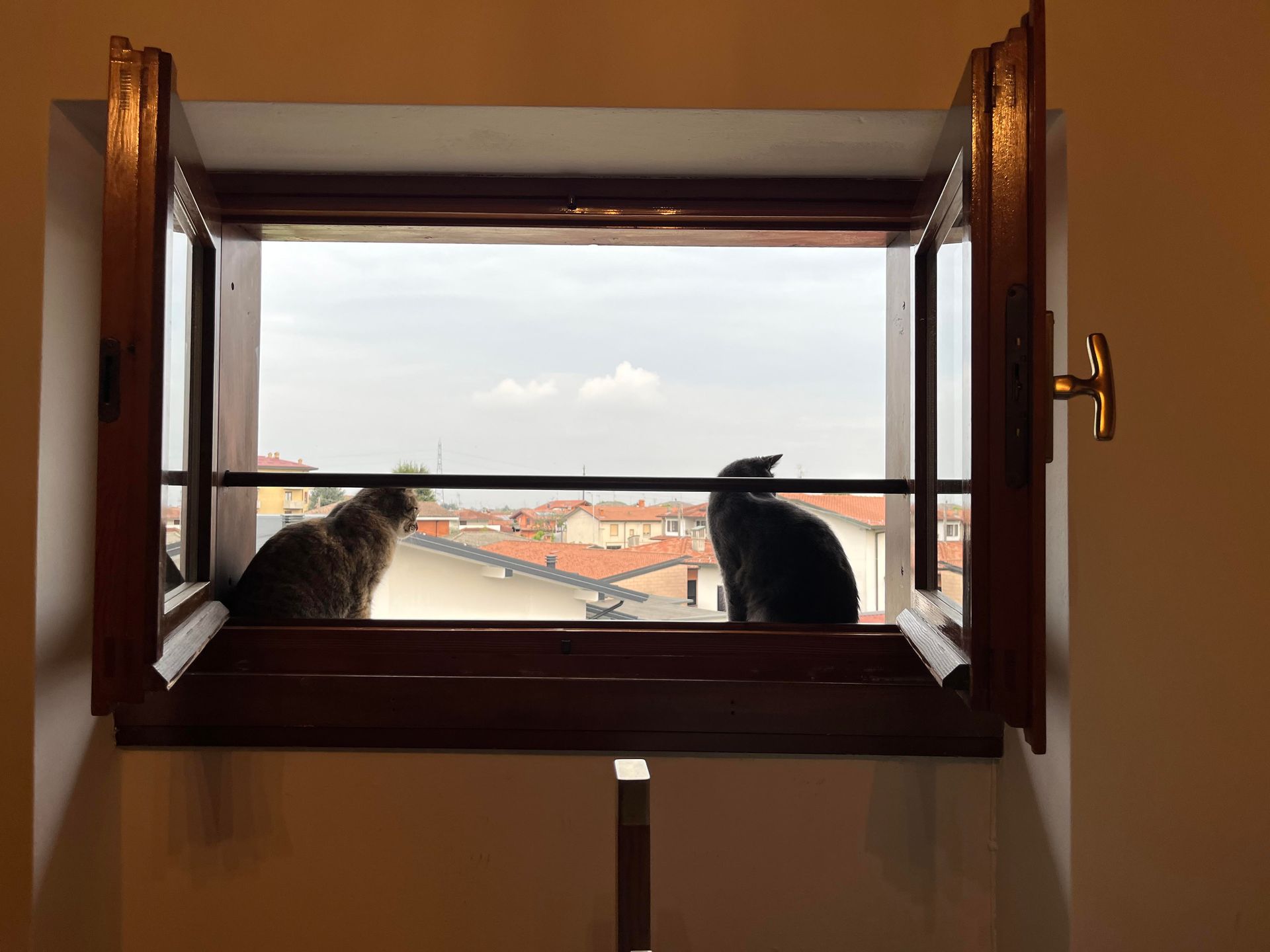
While Anika’s father worked 12 hours a day in a factory to earn enough money to buy food, Anika went to a free summer program where she learned to communicate with the other children. Having fled with only the clothes in their suitcases, they couldn’t afford summer clothes or anything other than food. Being a refugee in Italy was very hard, and when they learned that the United States was accepting Ukrainian refugees if they had American Sponsorship, they immediately thought of Vladimir’s friend, Karl.
Iryna explained: “My husband had a friend from Milwaukee who he met in Ukraine while taking a language course in Kyiv. For over a year, they continued having a conversation online each week, Vladimir speaking to Karl in English, and Karl speaking to my husband in Ukrainian.”
After hearing of their plight, Karl agreed to sponsor the family, so they filled out the paperwork, purchased plane tickets with money they painstakingly saved in Italy, donated their car to the Ukrainian military, and flew from Italy to Poland and then Poland to Chicago. “It was a grueling journey,” Iryna said, “And the entire time we always took our two cats with us too. We arrived in America with two suitcases and two cats.”
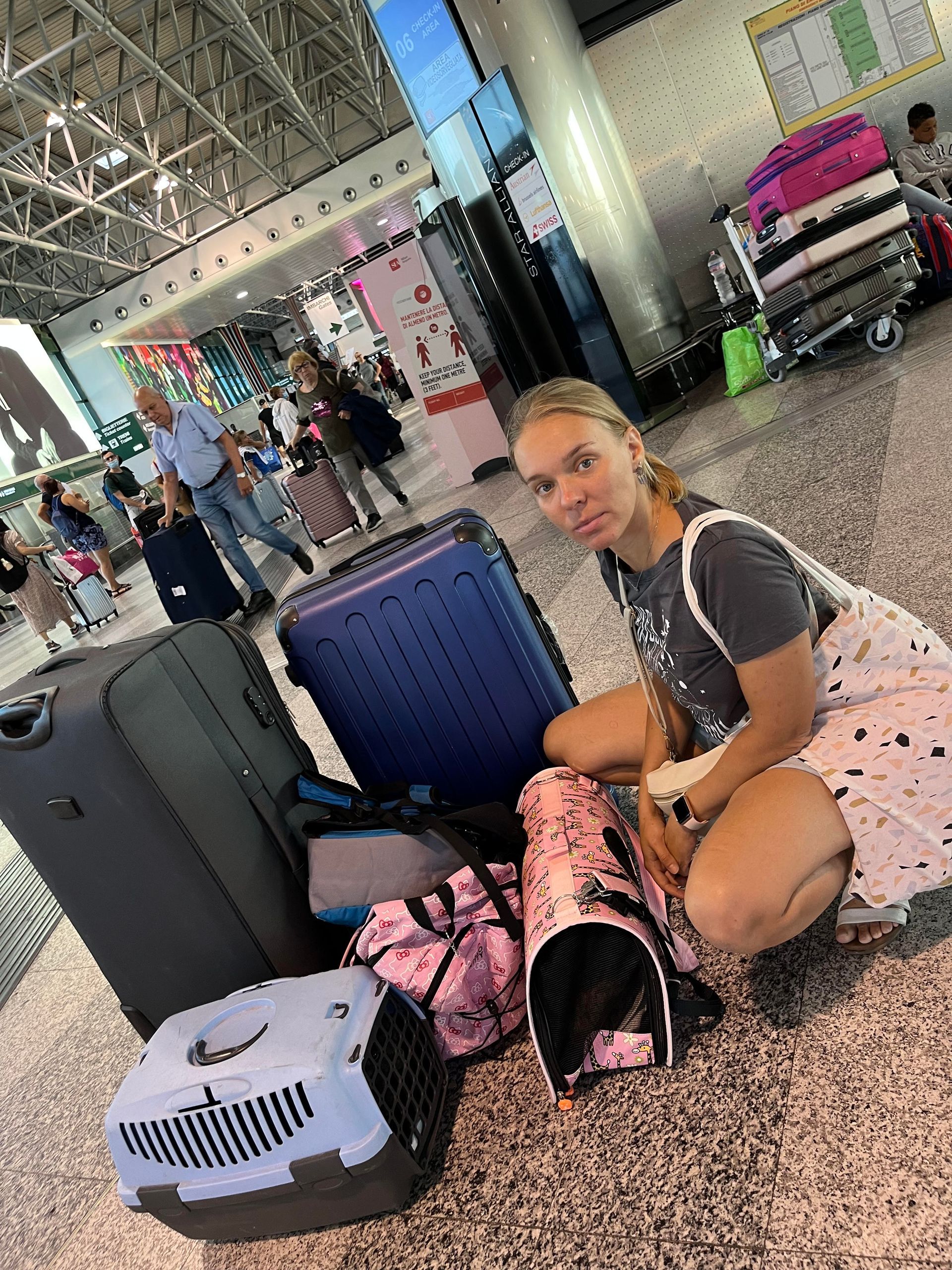
While they were waiting to leave Italy for the United States, Iryna started to look on the Internet for schools near Karl’s house. Iryna knew that even though Anika didn’t know a word of English, she could continue to use the Montessori materials to learn concepts and skills:
“I knew I wanted to find a Montessori School because Anika had already been through so much. I needed to ensure that she would be in a predictable, highly structured school with supportive children and families.”
Iryna knew that even though Anika didn’t know a word of English, she could continue to use the Montessori materials to learn concepts and skills: “I knew that a Montessori School would be the best chance for Anika to become comfortable in yet another country.”
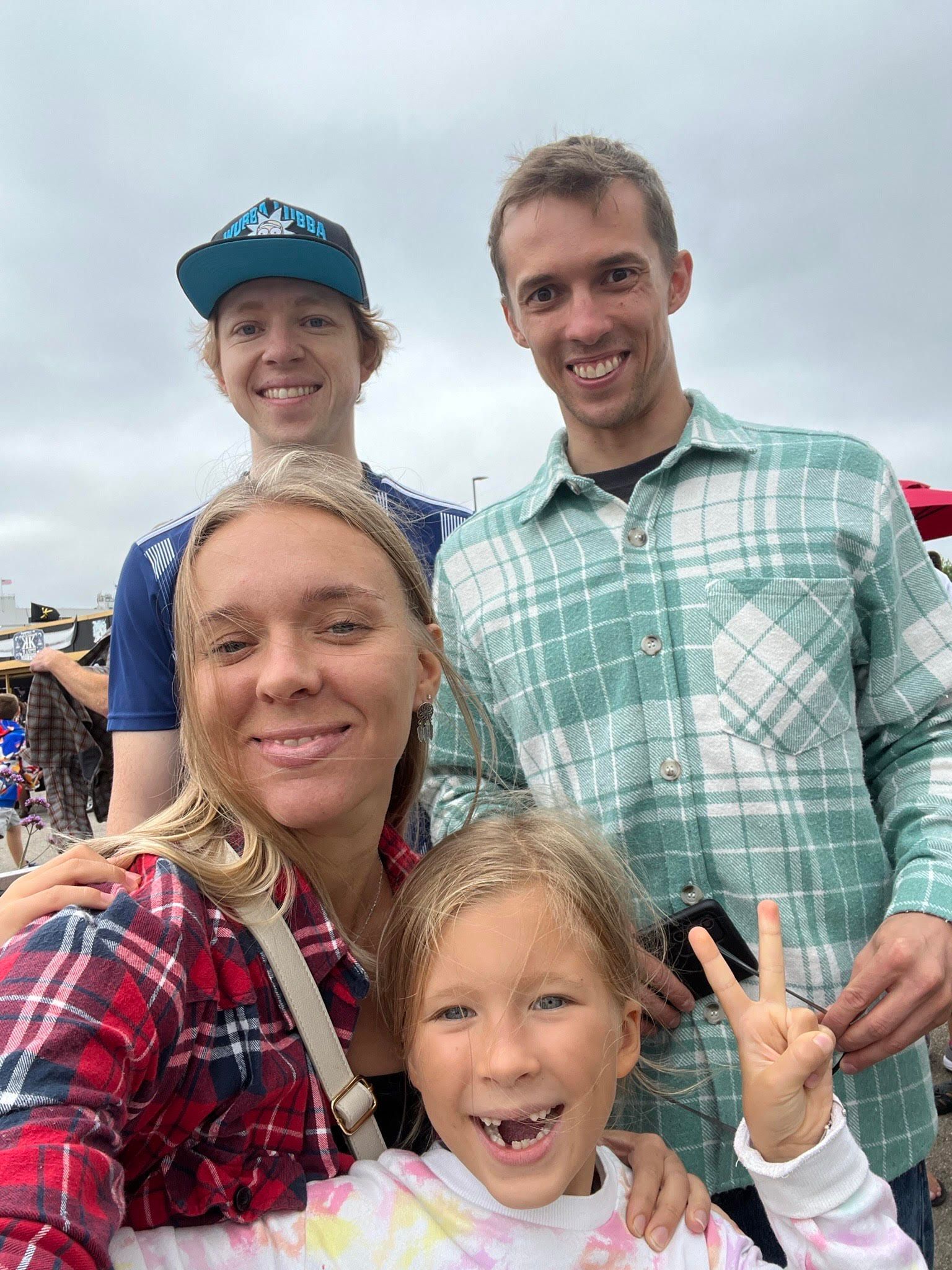
Karl met them at O’Hare and brought them back to his house in Milwaukee, where they stayed, sleeping on his floor, for three months. Karl’s relatives brought clothes for Anika because she had outgrown her clothing since leaving their home in Ukraine. Going through the refugee program, it took them almost two months to get social security numbers and work authorizations. Vladimir got his work permit and secured a job at Badger Railings on the same day. He also enrolled at MATC to get all of his welding certificates. Iryna took English language courses and continued to provide free counseling and support groups to Ukrainian clients and refugees.
When they found
Milwaukee Montessori School, Karl and his neighbors said it was a very good school with an excellent reputation.
“When we took a tour of the school,” Iryna remembers, “I felt like crying and crying. It is such a beautiful school, and the children were working and playing, and they were so kind to one another. The idea that Anika could go to such a wonderful school was the best thing that happened to us since we left Ukraine, and the fact that they could help us financially was such a wash of relief."
Iryna goes on, "As a refugee fleeing a war-torn country, you cannot imagine how grateful we feel to have one thing in our lives that is right. As a parent, I am so grateful that my child is in a good school. It lets me breathe again. Anika attending MMS is the one part of my life where everything is okay. The one place where everything is okay.”
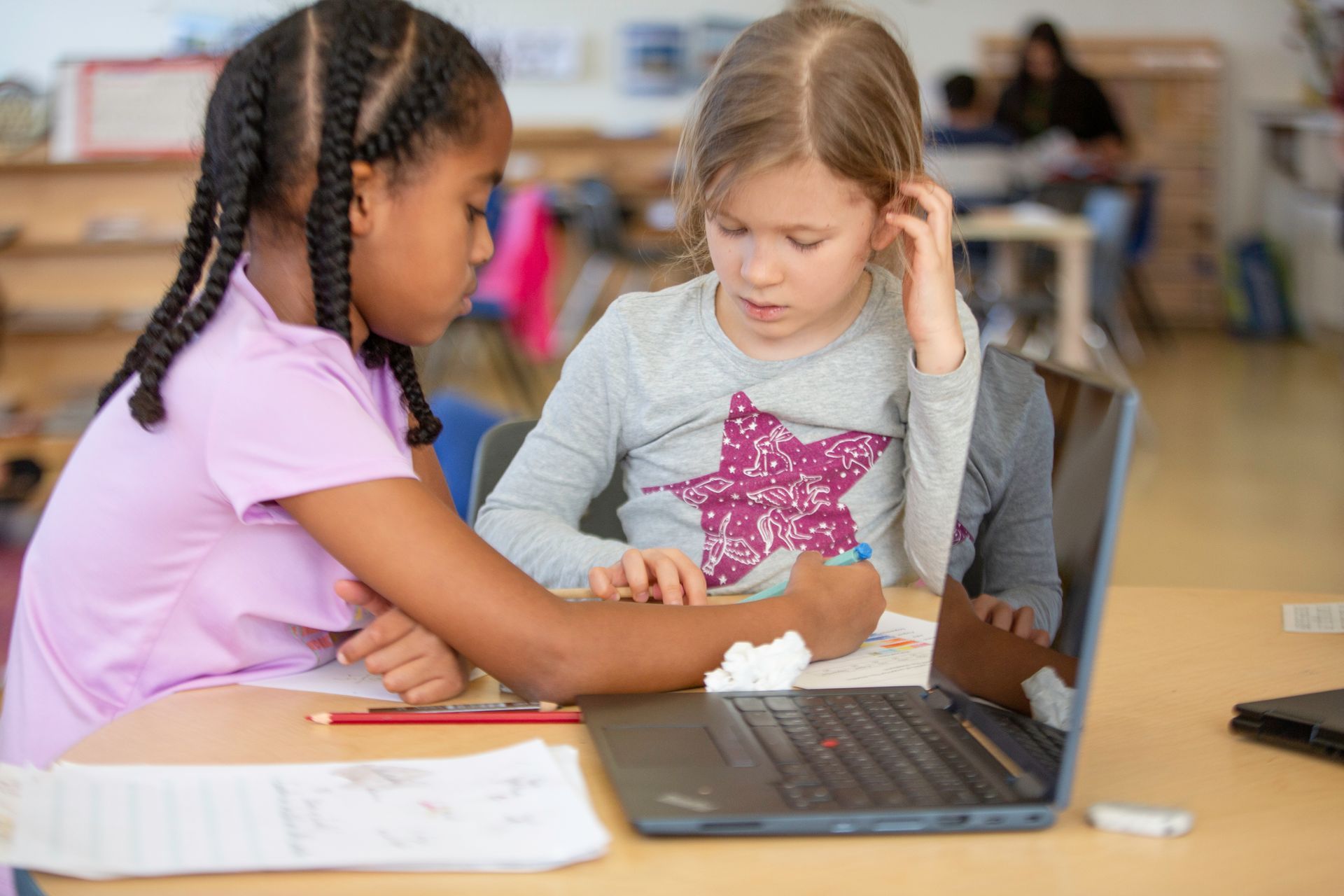
Even after everything that Anika had been through, and just beginning to learn English, her love of learning came shining through in that first year. Iryna says, “Anika loves her projects and loves coming to school. She wants to do hard work, and her lessons are interesting to her. She has no more anxiety. She even speaks Spanish and recites what she learned in her classes with
Ms. Gutierrez!”
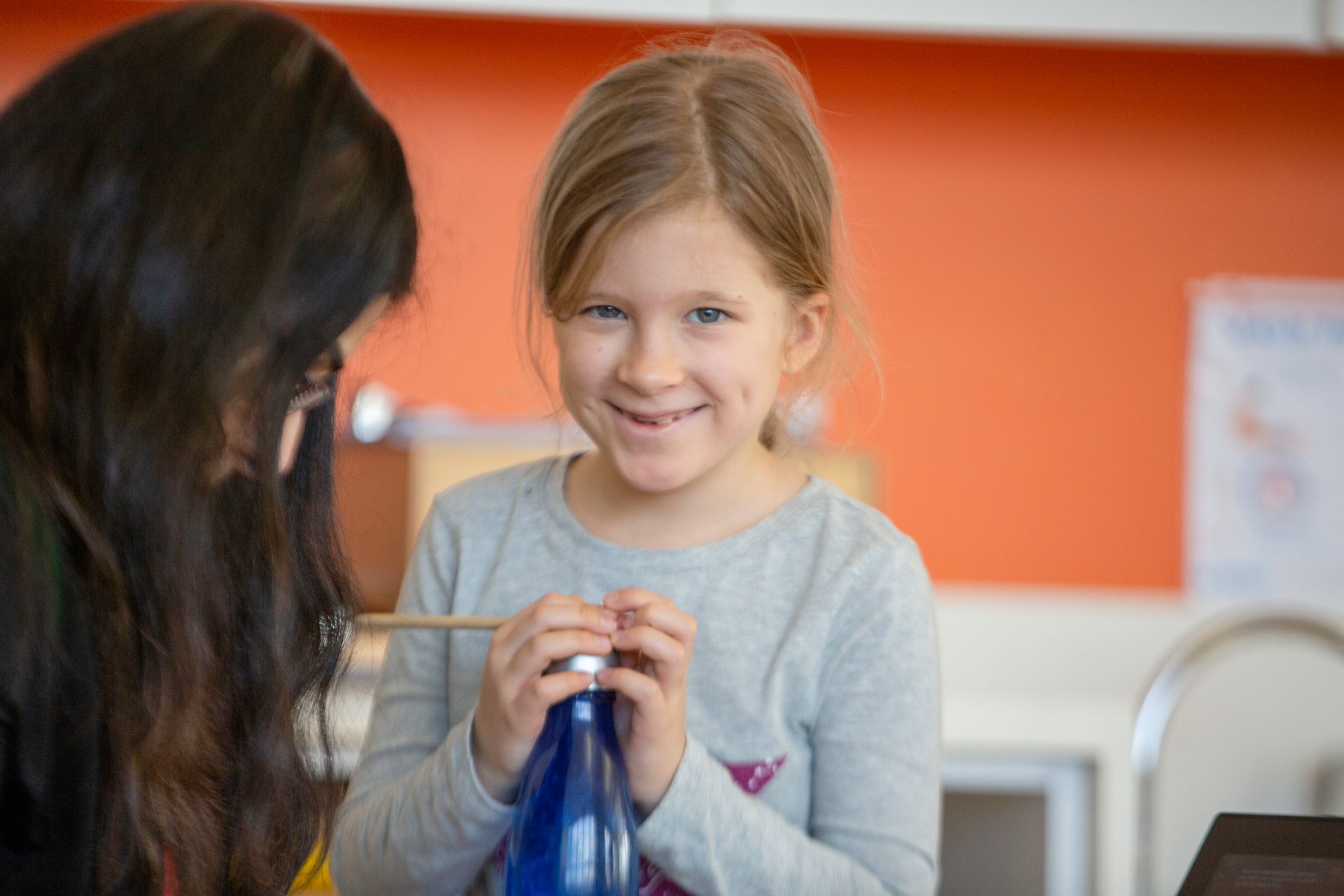
Last summer, Anika took MMS’ week-long Game Design class, and according to her mom, on the first day she didn’t like it, “but by the second day, she loved it, and for the remainder of the week she told us about Mr. Anastas and his coding lessons; she learned so much!” Iryna described that this year Anika is coming to school as a different person, “with much more confidence and happiness. Her English is so much better, and she loves math and Mrs. Arora and all of her teachers at MMS.”
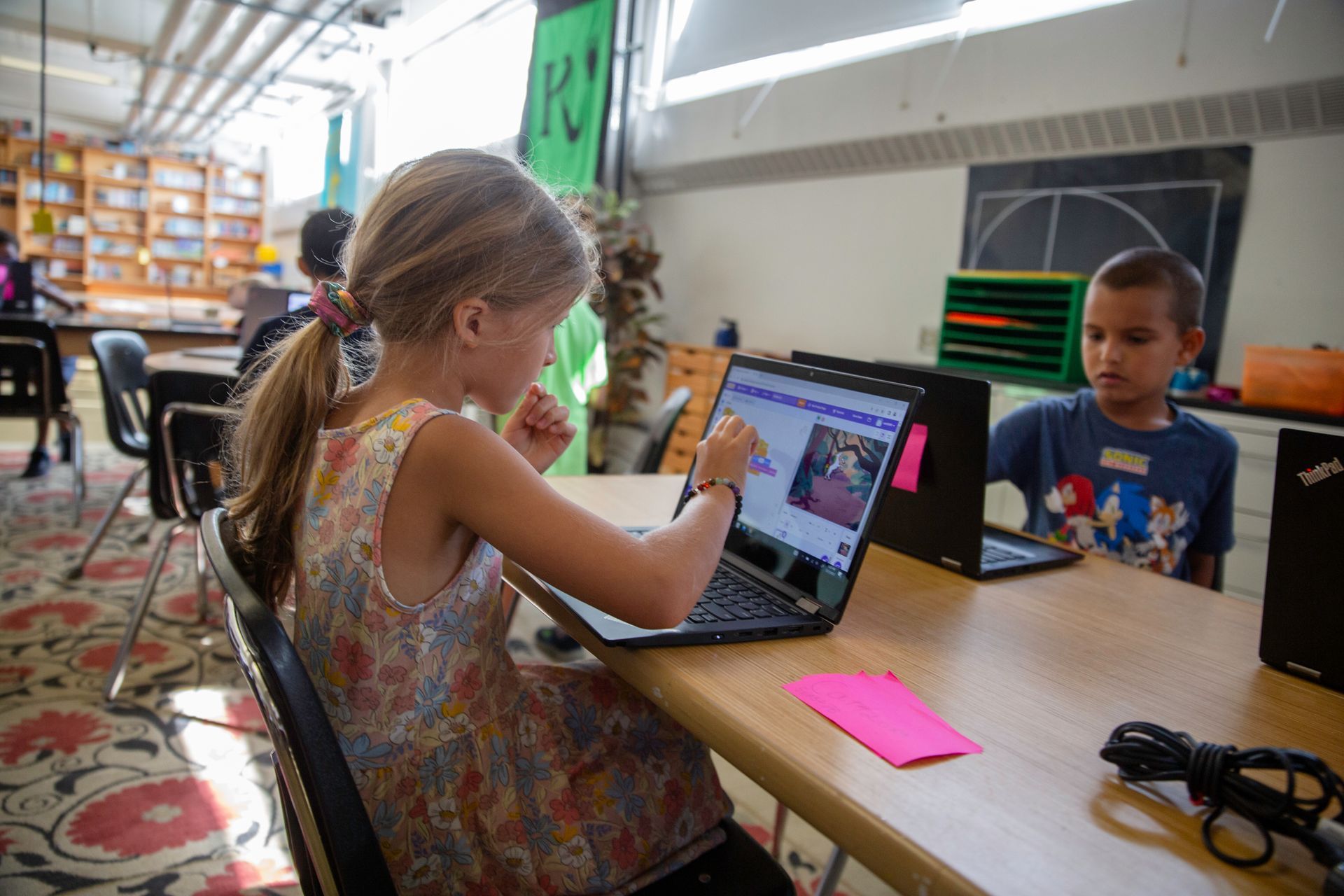
When we asked Iryna whether she might be willing to share her story and show people what their donations to the MMS Fund can do for families, she said, “I am happy I can tell my story for someone else and hope that my experience can be helpful. It was scary for me to ask for help because I was the one to help people in my country! In Ukraine, I donated; I provided my assistance to people and organizations; here it is still so challenging.”
She says that the tuition assistance that made it possible for Anika to
enroll
at
MMS
is what they really needed to settle into their lives in Milwaukee. “We needed a school where Anika could flourish, where she could learn and be pushed to challenge herself, all while making beautiful friendships… Our lives have been hard, in fact, for the first six months that Anika was attending MMS my husband dropped her off by bicycle because we didn't have a car, but all of that was just fine with us because MMS made it possible for Anika to adapt, to learn, and to find joy in her new life here.
We are forever grateful to MMS and everyone who thought to help this school so that the school could help us.”
Iryna, Vladimir, and Anika’s story is a powerful testimony to the resilience of the human spirit, the importance of the kindness of strangers, and the determination parents can have to ensure a bright future for their children.
While Anika’s journey to MMS is truly extraordinary, we know many families have gone to great lengths to find us, and we know that it is only because of generous donors to the MMS Fund that we are able to make the dream of transformative education a reality for them.
Please give as generously as you can to the MMS Fund.

